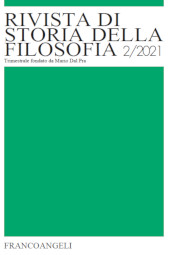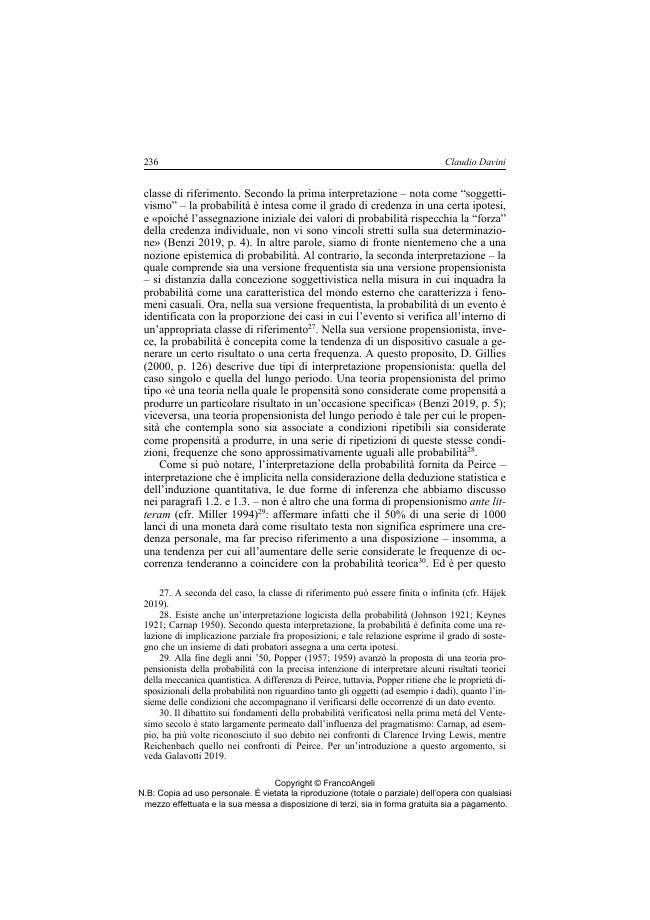Charles S. Peirce e la teoria dell'evoluzione di Darwin : alcune osservazioni su un possibile fraintendimento
221-250 p.
The article intends to explore a mostly overlooked topic, that of Peirce's philosophical response to Darwin's theory of evolution. The most striking feature of nineteenthcentury science in Peirce's view was the increasing role of statistics, not only in the kinetic theory of gases but also in the theory of measurement. From the ubiquity of probable errors in scientific measurements, Peirce concluded the inherent inexactitude of all scientific measurements and the existence of real chance in nature. This conception of science predisposed Peirce favorably toward Darwin's theory. Firstly, the Author argues that what particularly appealed to Peirce in Darwin's theory was an aspect which Darwin himself tried to conceal in embarrassment, namely the employment of chance as a mode of explanation.
Secondly, it is argued that Peirce failed to recognize the importance assigned by Darwin to the selective pressures imposed on an organism by the environment in which it is located. Finally, the Author maintains that Peirce was so impressed with the statistical aspect of Darwin's theory that he failed to recognize the crucial role assigned by it to the nonrandom influence of selection. [Publisher's text].
Fait partie de
Rivista di storia della filosofia : LXXVI, 2, 2021-
Articles du même numéro (disponibles individuellement)
-
Informations
Code DOI : 10.3280/SF2021-002002
ISSN: 1972-5558
KEYWORDS
- Peirce, Darwin, statistical inference, quantitative induction, Darwinian evolutionism



